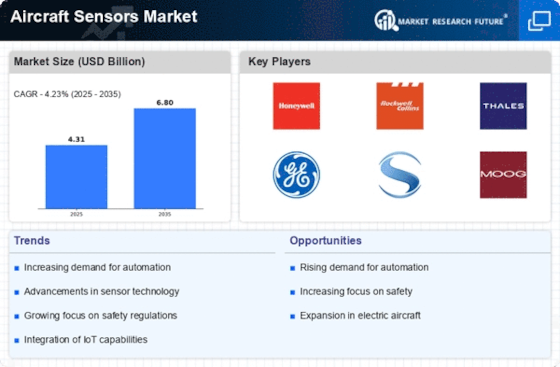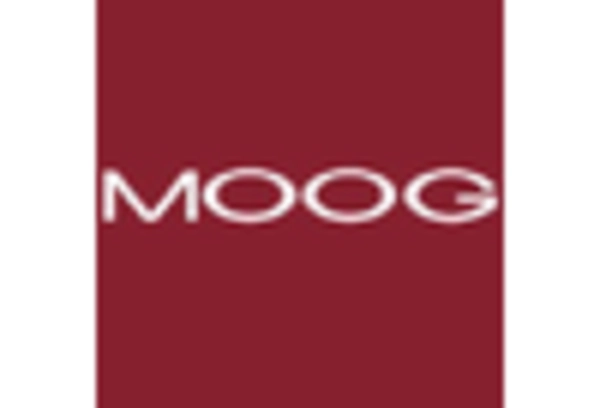Market Analysis
In-depth Analysis of Aircraft Sensors Market Industry Landscape
The aircraft sensors market is subject to a many number of market factors that have a collective impact on its direction and growth. This however encompasses a crucial factor which is the aviation industry’s unconstrained emphasis on safety and efficiency. Aircraft sensors are meant to provide real-time information about important factors like altitude, speed, temperature and pressure hence facilitating situational awareness as well as enabling safe and efficient operation of aircrafts. The desire for advanced sensor technologies within the sector demonstrates the commitment towards integration of cutting edge solutions that not only conform to safety standards but also add to overall safety and performance levels in aviation.
Central drivers in the dynamics of the Aircraft Sensors Market are innovation and technological advancements made therein.The airline industry constantly pushes sensors capabilities to new boundaries with innovations such as smart sensors, MEMS (Micro-Electro-Mechanical System) technology, among others.This improves accuracy, reliability and miniaturization of sensors meeting lightweight requirements for high performance driven solutions sought by industry.This dynamic landscape underscores an industries’commitment to being at the forefront of sensor technology in order to meet the demands of modern aviation.
Environmental sustainability has become one of the key market forces in shaping the aircraft sensors market.Ever since then pressure has been mounting on air travel companies making them look out for ways through which fuel usage can be optimized thus reducing emissions related costs.Fuel management system sensors are just but some examples that form part of this group.Engine performance/fuel consumption data sensors go further than this where it comes at a cost or even aerodynamics.Some underpinning demand is derived from these undertakings for a sustainable environment with respect to airplanes hence their fuel-friendly-nature in terms of how they fly.
Aircraft Sensors Market: The Growing Trend Towards Digitization And Connectivity. The Internet Of Things(IoT) era combined with connected airplanes has resulted into increased utilization of digitalized systems within airlines.Sensors now play a valuable role when it comes to the real time data collection and transmission, used in continuous control and decision making. The development of smart aviation systems would not have been possible without aircraft sensors. This move is a reflection of the industry’s recognition for data-based insights and could enhance operational efficiency using real-time exchange of information.
Aircraft Sensors Market Globalization And The Boom In Air Travel. With an ever-increasing demand for air travel within the aviation sector, aircraft sensors are essential for handling complexities associated with global air transportation.Sensors help in optimizing navigation, traffic management, and communication systems hence guaranteeing safe movements of airplanes within congested airspace. The demand by most airlines for such sensors therefore acts as a response to the emerging interconnectivity challenges across the various spheres of this industry.
The market factors that remain constant markets factors which are regulatory requirements and safety standards in Aircraft Sensors Market.The highly regulated nature of the aviation sector makes it absolutely necessary for sensors to conform to strict safety and performance guidelines.Sensors foster compliance with flight regulations so that those planes meet prescribed standards required both from safety and operational points of view.This market factor indicates how determined a particular industry is in maintaining topmost levels of security during flights."


















Leave a Comment